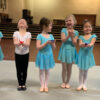Adults can be treated whilst sitting (particularly in pregnancy). Babies can be treated while awake, feeding or sleeping. Young children can play or read during their treatment.
Cranial osteopathy is the term which is referred to when using the involuntary approach to osteopathic practice and was developed at the beginning of the last century by an American Osteopath called W.G. Sutherland. Cranial osteopathy is a “non-invasive technique involving light touch to facilitate the body’s natural self-corrective mechanism” (Sutherland). Because of this, treatment is suitable for all ages and can be used from birth, to treat a specific problem or just to help restore balance in a hectic life.
The techniques are extremely gentle and are essentially a very safe method of diagnosis and treatment. Osteopaths using these cranial techniques also use orthodox clinical investigations in their diagnostic process and can help a wide range of conditions for which other osteopathic techniques would be inappropriate.
Cranial osteopathy is based on pure anatomy and physiology. Sutherland initially used the brain and skulls of animals to understand the skulls anatomy with its bevelled edges, hinge joints, sinus, sulcus and grooves. He went on to use human tissues and then live patients to develop his techniques, initially using them on himself to treat his migraines and then he used them on his family.
The craniosacral system is a physiological system consisting of the membranes and cerebrospinal fluid (CSF) which surrounds and protects the brain and spinal cord. It extends from the bones of the skull and face down to the base of the spine. The production and flow of the CSF occurs in a rhythmical pattern, it is this rhythm that can be palpated in the treatment. The technique focuses on enhancing the CSF flow throughout the body to facilitate the normal patterns of movement.
Imbalances or restrictions of these natural movements can manifest themselves physically. Many problems come about due to abnormal patterns, habits or traumas (including dental work) which can build up over a period of time. These restrictions or tensions slowly give rise to other problems and can result in pain, headaches, fatigue, migraines, whiplash, problems in pregnancy, digestive complaints and so on.
The use of the word ‘cranial’ when discussing these techniques can often be misleading as it implies that only ‘head’ based problems can be helped by cranial osteopathy. As the techniques work on connective tissues, ligament and drainage issues they are particularly useful for other joints and areas too.
Taken from www.wwnhc.co.uk










